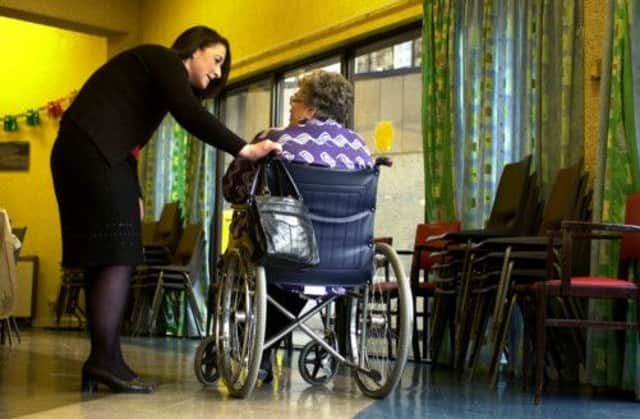SNP ‘must prepare for dementia crisis’ in Scotland


Conservatives spoke out after figures, which they obtained from NHS Scotland’s Information Services Division, ISD Scotland, showed more than 183,000 prescriptions for drugs to treat the condition were handed out last year.
Deputy leader and health spokesman Jackson Carlaw urged ministers to ensure the NHS would be able to cope with the level of care dementia sufferers would need.
Advertisement
Hide AdAdvertisement
Hide AdHe raised the issue after it emerged the number of prescriptions for drugs to treat the condition had increased by almost 30,000 from 2011-12 and is now nearly 50,000 higher than the total in 2010-11, according to the ISD Scotland figures.
Despite this rise, the cost of the drugs has fallen, from just under £15 million in 2011-12 to just over £10.2 million last year.
The NHS has spent more than £38 million on prescriptions for dementia drugs in the last three years.
“This problem has been coming down the tracks for some time, and we can see from these figures that it is intensifying,” Mr Carlaw said.
“There’s little that can be done in the short-term to prevent the increase in people suffering dementia, particularly as our general population gets older.
“But it is essential the Scottish Government is prepared for this, because we have all been warned about the scale of the challenge for some time.”
He added: “We need to ensure there is enough capacity for those dementia sufferers who eventually require hospital care, and guarantee that when they are treated in a general ward for other issues, staff are sufficiently trained to deal with the additional difficulties dementia brings.
“It’s also essential we have enough quality care home places available, and that these facilities have the trust of the patients’ children, spouses or relatives who place them there.”
Advertisement
Hide AdAdvertisement
Hide AdA Scottish Government spokesman said: “People in Scotland are living longer, healthier lives and such a significant change inevitably means that services need to evolve in order to meet the challenges of a rapidly ageing population.
“A national target on improving dementia diagnosis rates has already been achieved and around 64% of those with dementia are currently being diagnosed in Scotland - significantly higher than England and Wales.
“As more people get diagnosed we expect overall prescriptions to rise. However, the prescribing of psychoactive medication to help manage the more advanced stages of the illness has declined since 2009 and we are committed to further reducing such prescribing.
“We have in place a world-leading commitment on post-diagnostic support for people diagnosed with dementia, which ensures every person newly diagnosed with dementia receives at least a year of post-diagnostic support, provided by a named person.
“We also have Alzheimer Scotland nurse consultants and dementia champions working in NHS Boards across Scotland and a new National Action Plan to further improve dementia care in hospitals.”
SEE ALSO